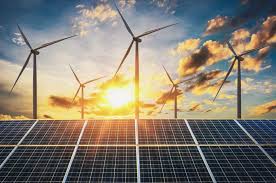Ghana’s installed power capacity is about 4,399MW, of which 22.5WM is renewable energy against a demand of about 2,700MW. Initially, the country intended to develop and utilise renewable energy and energy-efficiency technologies to achieve a 10% penetration of national electricity production by 2020.
By the end of 2017, the strategy was revisited to find that only 0.5% of renewable energy penetration in the overall national supply out of the 10% target had been achieved.
The perceived high initial cost of solar energy, coupled with the lack of a dedicated funding mechanism, might have accounted for the low uptake of solar energy as a renewable source of energy.
Globally, solar costs have fallen 82 percent since 2010. The cost dropped by 82% for photovoltaic solar, by 47% for concentrated solar energy (CSP), by 39% for onshore wind and by 29% for wind offshore, the International Renewable Energy Agency said in its Renewable Power Generation Costs 2019 report released earlier this year.
The cost is expected to drop further in the coming years as technology continues to advance, and this presents an opportunity for emerging economies like ours to latch onto. Experts are urging government to establish a green or clean energy credit line to provide funding at rates lower than the prevailing commercial bank lending rates for individuals and companies that want to invest in renewable energy.
Even the Association of Ghana Industries (AGI) is advocating for a speedy adoption and promotion of renewable energy sources, so as to diversify the power generation mix and bring about competitiveness.
Seth Twum Akwaboah, AGI’s Chief Executive Officer, notes that the whole world is talking about renewables and, gradually, technology is advancing as it is becoming cheaper. He explained that industrial usage is now also possible, and that it therefore makes more commercial sense for us to promote it.
He spoke at a roundtable business event meeting for renewable energy and energy-efficiency service providers. Since tariffs on conventional sources of electricity are going higher by the day, it makes a lot of business sense to opt for alternatives.










